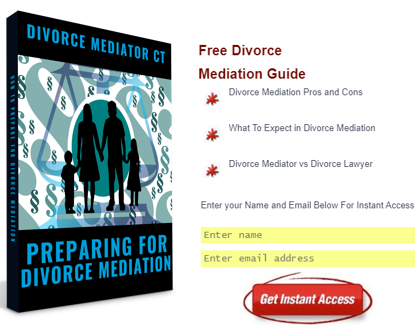What is Divorce Mediation?
What is Divorce Mediation?
Divorce mediation is an alternative approach to settling disputes outside traditional court proceedings. It involves working with a neutral mediator who facilitates discussions and helps couples reach mutually agreeable solutions. Unlike litigation, where a judge makes decisions on the couple’s behalf, mediation empowers them to make their own decisions.
Benefits of Divorce Mediation
Divorce mediation offers several benefits compared to a litigated divorce. First and foremost, it can be a cost-effective option. Mediation typically requires less time and fewer legal fees, making it a financially viable alternative. Additionally, mediation promotes open communication and cooperation between spouses, which can lead to more amicable outcomes and better co-parenting relationships.
Factors that Influence Divorce Mediation Costs
One of the primary considerations is the complexity of the issues involved. Suppose the couple has significant assets, child custody disputes, or complex financial matters. In that case, it may require more mediation sessions, leading to higher costs. The mediator’s experience and qualifications can also impact the fees. Seasoned mediators with specialized knowledge may charge higher rates.
Average Divorce Mediation Costs
While the exact costs of divorce mediation can vary, it’s helpful to understand the average expenses involved. On average, divorce mediation costs range from $3,000 to $7,000. This includes the mediator’s fees, which are typically charged hourly. However, remember that these figures are only a rough estimate, and the actual costs may differ based on the factors discussed earlier.
Understanding the Different Fee Structures in Divorce Mediation
Divorce mediators may have different fee structures. You need to understand these fees to limit unnecessary costs. Some mediators charge an hourly rate ranging from $150 to $500 per hour. Others offer package deals, where a fixed fee covers a certain number of sessions or services. Understanding the fee structure upfront can help you plan your budget accordingly and avoid surprises.
Ways to Reduce Divorce Mediation Costs
While divorce mediation costs are generally lower than litigation expenses, it’s natural to seek ways to reduce them further. Here are some strategies to consider:
1. Prepare in advance: Come to mediation sessions well-prepared with all the necessary documents and information. This can help streamline the process and prevent additional sessions.
2. Focus on the key issues: Identify the most critical issues that need resolution and prioritize them during mediation. By avoiding unnecessary disputes, you can save time and money.
3. Maintain open communication: Effective communication with your spouse and the mediator is crucial. To avoid any misunderstandings, be clear and concise in your communication. This also helps reduce any unnecessary back-and-forth.
4. Consider online mediation: Online mediation can be cost-effective, especially if you and your spouse live in different locations. It eliminates travel and can be more convenient for both parties.
Hiring a Divorce Mediator – Ask Questions
Choosing the right divorce mediator is essential to ensure a smooth and successful mediation process. When interviewing potential mediators, consider asking the following questions:
1. What is your experience with divorce mediation?
2. Are you familiar with the local laws and regulations?
3. How do you handle complex financial matters?
4. What is your approach to resolving conflicts?
5. What is your fee structure, and do you have payment terms?
By asking these or similar questions, you can help assess the mediator’s expertise, approach, and compatibility with your specific needs.
Additional Expenses to Consider in Divorce Mediation
While the mediator’s fees are a significant component of divorce mediation costs, it’s also important to consider other potential expenses. These may include attorney fees for reviewing the mediation agreement, filing fees, and other required professional services. It’s advisable to consult with your attorney to understand the complete financial implications of divorce mediation.
Alternatives to Divorce Mediation and Their Costs
Divorce mediation may not be the right option for everyone. It’s essential to explore alternative methods of dispute resolution and their associated costs. Litigation, collaborative divorce, and arbitration are some alternatives to consider. However, it’s worth noting that litigation tends to be the most expensive option, often resulting in increased legal fees and a longer process.
Child Custody and Mediation

Child Custody Mediation: The Best Solution
Understanding Child Custody Mediation Services
Child custody disputes can be emotionally and financially draining for all parties involved. However, there is an alternative to traditional litigation that can help parents find a peaceful resolution – child custody mediation. In this process, a neutral third party, known as a mediator, helps parents come to an agreement regarding the custody of their child. This approach to resolving custody disputes has grown in popularity due to its numerous benefits for both parents and children.
Benefits of Choosing Mediation for Child Custody Disputes
Mediation offers many advantages over traditional litigation when it comes to resolving child custody disputes. One of the main benefits is that it allows parents to maintain control over the decision-making process. Unlike in a court setting where a judge makes the final decision, mediation empowers parents to work together and come up with a solution that works for their unique situation.
Additionally, mediation can be a more efficient and cost-effective option compared to going to court. The process is typically shorter and less expensive, as it does not involve lengthy court hearings or multiple attorney fees. It also allows parents to avoid the stress and uncertainty of a custody battle in court.
Moreover, mediation can help promote a healthier co-parenting relationship between the parents. By working together to reach a custody agreement, parents can learn to communicate effectively and make decisions in the best interest of their child. This can create a more positive and stable environment for the child, reducing the potential negative impacts of a custody dispute on their well-being.
A Step-by-Step Guide to the Child Custody Mediation Process
The child custody mediation process typically involves the following steps:
- Initial consultation: Both parents meet with the mediator to discuss their custody issues, concerns, and goals for the mediation process.
- Information gathering: The mediator will gather information about the parents’ background, the child’s needs, and any existing custody agreements.
- Joint session: The mediator will schedule a joint session with both parents, where they will discuss the issues and work towards finding a mutually agreeable solution.
- Individual sessions: At times, the mediator may schedule individual sessions with each parent to gather more information or address any specific concerns.
- Mediated agreement: If the parents are able to reach an agreement, the mediator will draft a custody agreement that outlines the terms and conditions agreed upon by both parties.
- Final agreement: Once both parents have reviewed and agreed to the mediated agreement, it can be finalized and submitted to the court for approval.
The length of the mediation process can vary depending on the complexity of the issues and the willingness of both parties to collaborate and compromise. However, on average, it can take anywhere from one to three months.
Expert Advice: Why Mediation is a Better Option for Child Custody
We spoke with child custody mediator, Jane Smith, to get her expert opinion on why mediation is a better option for resolving child custody disputes. According to Jane, “Mediation allows parents to maintain control over the outcome of their case and work together to find a solution that works for both parties. It also promotes a healthier co-parenting relationship, which is essential for the child’s well-being. Additionally, mediation is a more cost-effective and timely option compared to going to court.”
Jane also emphasized the benefits of mediation for the children involved. “Child custody disputes can be traumatic for children, especially when they involve lengthy court battles and constant disagreements between parents. Mediation offers a more peaceful and collaborative approach, which can help reduce the negative impact on the child’s emotional and mental well-being.”
How to Choose the Right Mediator for Your Child Custody Case
Choosing the right mediator for your child custody case is crucial to the success of the mediation process. Here are some factors to consider when selecting a mediator:
- Experience and qualifications: Look for a mediator who has experience and training in family law and child custody mediation. They should also have a good understanding of the laws and regulations in your state.
- Specialization: Some mediators specialize in specific areas of family law, such as high-conflict custody cases or cases involving domestic violence. Consider your specific needs and look for a mediator who has experience in handling similar cases.
- Communication style: Mediation is all about communication and collaboration. Look for a mediator who has excellent communication skills and can facilitate productive discussions between you and your co-parent.
- Cost: Mediation can vary in cost, so it’s essential to consider your budget and find a mediator who offers their services at a fair price. Some mediators also offer a sliding scale fee based on income, so be sure to inquire about this option.
- Referrals and recommendations: Ask for recommendations from friends, family, or other professionals who have gone through the mediation process. You can also check online reviews or ask for references from the mediator themselves.
Effective Techniques for Successful Child Custody Mediation
Here are some techniques that can help make your child custody mediation more successful:
- Be prepared: Come to the mediation sessions with a clear idea of what you want to achieve and the issues you want to discuss. This will help keep the sessions focused and productive.
- Practice active listening: Listen to what the other parent has to say without interrupting or becoming defensive. This will help foster open communication and understanding between both parties.
- Keep the child’s best interests in mind: Remember that the focus of the mediation is to come up with a solution that is in the best interest of the child. Keep this in mind when making decisions and avoid letting your emotions guide your actions.
- Be flexible and willing to compromise: Mediation requires both parties to be flexible and willing to compromise. Be open to different solutions and try to find a middle ground that works for everyone.
- Take breaks when needed: If the discussions become too heated or overwhelming, don’t be afraid to ask for a break. This will allow both parties to regroup and come back to the discussion with a clear and calm mind.
Comparing Mediation vs. Litigation for Resolving Child Custody Disputes
Here is a comparison between mediation and litigation for resolving child custody disputes:
| Mediation | Litigation | |
|---|---|---|
| Decision-making power | Parents have control over the outcome and can work together to find a solution that works for both parties. | Judge makes the final decision, which may not be in line with either parent’s wishes. |
| Cost | Less expensive, as it does not involve multiple attorney fees or lengthy court hearings. | Can be more expensive, with attorney fees and court costs adding up quickly. |
| Time | Typically shorter, with the process taking anywhere from one to three months. | Can be a lengthy process, with court hearings and decisions potentially taking months or even years. |
| Co-parenting relationship | Promotes a healthier co-parenting relationship, which can have a positive impact on the child’s well-being. | Can create hostility and tension between parents, which can negatively impact the child’s emotional and mental well-being. |
Real Life Success Stories: How Mediation Can Help in Child Custody Cases
Here are some real-life success stories of how mediation has helped parents resolve their child custody disputes:
Case 1: Sarah and John were going through a divorce and were struggling to come to an agreement on custody of their two children. They had been to court multiple times, but the judge could not make a decision that both parties were satisfied with. As a last resort, they decided to try mediation. With the help of a mediator, they were able to reach an agreement that worked for both of them, and their children were able to have a stable and positive co-parenting relationship.
Case 2: Tina and Mark were in a high-conflict custody battle, and their children were caught in the middle. Despite numerous court hearings, they could not agree on a custody arrangement. A judge referred them to mediation, and with the help of a trained mediator, they were able to come up with a solution that met the needs of their children and allowed them to co-parent effectively.
Tips for Finding the Best Mediator for Your Child Custody Mediation
If you’re considering child custody mediation, here are some tips to help you find the best mediator for your case:
- Do your research and make sure the mediator has experience and training in family law and child custody mediation.
- Consider any specific needs or concerns you have and look for a mediator who has experience in handling similar cases.
- Ask for recommendations from friends, family, or professionals who have gone through the mediation process.
- Meet with the mediator before starting the process to ensure you feel comfortable with their communication style and approach.
- Be upfront about your budget and ask about any sliding scale fees or payment options.
Conclusion: How Child Custody Mediation Can Help Your Family
In conclusion, child custody mediation offers numerous benefits for parents and children alike. It allows parents to work together to come up with a custody arrangement that is in the best interest of their child, promotes a healthier co-parenting relationship, and can be a quicker and more cost-effective option compared to traditional litigation. By choosing the right mediator and using effective techniques, parents can successfully navigate the mediation process and find a positive solution for their family.
Cultural Considerations in Online Mediation

Cultural Sensitivity in Online Mediation: Key Strategies for Success
Definition of Cultural Sensitivity
Cultural sensitivity refers to the awareness, understanding, and respect for cultural differences, beliefs, and values. It involves recognizing and appreciating the diversity of individuals and groups, and avoiding any discriminatory or biased behavior towards them. In the context of online mediation, cultural sensitivity refers to the ability to effectively manage and address conflicts and disputes while taking into account the cultural backgrounds and perspectives of the parties involved.
Importance of Cultural Sensitivity in Online Mediation
With the rise of online dispute resolution and virtual communication, the need for cultural sensitivity in mediation has become more crucial than ever. In a globalized world where people from different cultures and backgrounds interact and work together, understanding and respecting cultural differences is essential in avoiding misunderstandings, conflicts, and biases. In an online mediation setting, where there is a lack of physical cues and nonverbal communication, cultural differences can lead to misinterpretations and potential disputes. Therefore, incorporating cultural sensitivity in online mediation is vital for ensuring a fair and effective resolution process.
Understanding Cultural Differences in Online Communication
Communication is a fundamental aspect of mediation, and cultural differences can significantly impact the effectiveness of communication in an online setting. Understanding and adapting to these differences is essential for promoting cultural sensitivity in online mediation. Some key aspects to consider when dealing with cultural differences in online communication are:
Language Differences
Language is a significant barrier in online communication, especially in a mediation setting where the parties may not have a shared language. In such cases, it is crucial to have interpreters or translators to ensure effective communication between the parties. However, it is also essential to be mindful of cultural differences in language, such as different dialects, idioms, and cultural beliefs that may affect the interpretation of words and phrases. Mediators must be aware of these differences and use language that is easily understood by all parties involved.
Virtual Etiquette
In virtual communication, there may be differences in the use of technology and platforms, as well as cultural norms surrounding virtual communication. For example, some cultures may value direct and assertive communication, while others may prefer a more indirect and polite approach. It is crucial for mediators to understand these differences and adapt their communication style accordingly to avoid misunderstandings and conflicts.
Cultural Values and Beliefs
Cultural values and beliefs play a significant role in how individuals perceive and respond to conflicts. For example, some cultures may place a high value on preserving harmony and avoiding confrontation, while others may prioritize individual rights and assertiveness. These differences can lead to varying approaches to conflict resolution and must be taken into account during online mediation.
Benefits of Incorporating Cultural Sensitivity in Online Mediation
Incorporating cultural sensitivity in online mediation can bring numerous benefits to the process and the parties involved. Some of these benefits include:
Effective Communication and Understanding
Cultural sensitivity allows for effective communication and understanding among parties from different cultures. By recognizing and respecting cultural differences, mediators can create a safe and inclusive environment where all parties feel comfortable expressing their needs and concerns. This, in turn, leads to better understanding and a higher chance of reaching a mutually agreeable resolution.
Fair and Equitable Resolutions
By considering cultural differences, mediators can ensure that the resolution process is fair and equitable for all parties involved. This is especially important in cases where cultural biases and stereotypes may impact the outcome of the mediation. Cultural sensitivity helps in addressing these biases and ensuring that all parties are treated equally and respectfully.
Building Trust and Rapport
Cultural sensitivity can help build trust and rapport between the mediator and the parties. When mediators show an understanding and appreciation of cultural differences, it can help create a sense of trust and goodwill among the parties. This trust is essential for the success of the mediation process.
Enhancing Problem-Solving Skills
Dealing with cultural differences in online mediation requires mediators to be flexible and creative in finding solutions that consider the needs and perspectives of all parties. This enhances their problem-solving skills and can lead to more innovative and effective resolutions.
Challenges in Maintaining Cultural Sensitivity in Online Mediation
While there are many benefits to incorporating cultural sensitivity in online mediation, there are also some challenges that mediators may face. Some of these challenges include:
Lack of Cultural Competence
Mediators may not always have the necessary cultural competence and knowledge to effectively navigate cultural differences. This can lead to misunderstandings, conflicts, and biases that may impact the resolution process. The lack of diversity in the mediator pool can also contribute to this challenge.
Technical Difficulties
In an online mediation setting, technical difficulties such as poor internet connection or malfunctioning technology can hinder effective communication and lead to misunderstandings and conflicts. Mediators must be prepared to address such issues and have backup plans in place.
Limited Nonverbal Communication
In virtual communication, there is a lack of physical cues and nonverbal communication, which can make it challenging to understand the emotions and intentions of the parties involved. This can lead to misunderstandings and conflicts, especially in a cross-cultural context.
Strategies for Promoting Cultural Sensitivity in Online Mediation
Despite the challenges, there are various strategies that mediators can use to promote cultural sensitivity in online mediation. These strategies include:
Cultural Training and Education
Mediators should undergo cultural training and education to develop the necessary cultural competence and sensitivity. This can include learning about different cultures, communication styles, and conflict resolution practices.
Use of Technology
Mediators can use technology to their advantage in promoting cultural sensitivity. For example, they can use translation and interpretation tools to overcome language barriers, or use video conferencing to enhance nonverbal communication.
Culturally Diverse Mediators
To better understand and address cultural differences, it is essential to have a diverse pool of mediators. This can help in bridging cultural gaps and promoting more inclusive and effective resolutions.
Encouraging Communication and Clarification
Mediators should encourage open and honest communication between the parties and provide opportunities for clarification when needed. This can help in avoiding misunderstandings and conflicts arising from cultural differences.
Role of Mediators in Promoting Cultural Sensitivity in Online Mediation
Mediators play a crucial role in promoting cultural sensitivity in online mediation. Some key responsibilities and strategies that mediators can adopt include:
Create a Safe and Inclusive Environment
Mediators must create a safe and inclusive environment where all parties feel comfortable expressing themselves and their cultural perspectives. This can include setting ground rules and actively listening to the parties’ concerns and needs.
Practice Cultural Awareness and Sensitivity
Mediators should be mindful of their own cultural biases and be aware of how these biases may impact the mediation process. They should also be sensitive to the cultural differences of the parties involved and adapt their communication and approach accordingly.
Encourage Collaboration and Empathy
Mediators should encourage collaboration and empathy among the parties to promote understanding and effective communication. This can include encouraging the parties to actively listen to each other and consider each other’s perspectives.
Address Biases and Stereotypes
Mediators should address any biases or stereotypes that may arise during the mediation process. This can involve challenging assumptions and providing opportunities for parties to educate each other about their cultural backgrounds and beliefs.
Impact of Cultural Sensitivity on the Effectiveness of Online Mediation
The incorporation of cultural sensitivity in online mediation can have a significant impact on the overall effectiveness of the process. Some of the key impacts include:
Improved Communication and Understanding
Cultural sensitivity leads to improved communication and understanding among parties from different cultures. This can help in avoiding conflicts and misunderstandings, and in turn, lead to more effective resolutions.
Increased Trust and Rapport
When mediators promote cultural sensitivity, it can help build trust and rapport between the parties. This trust is crucial for the success of the mediation process and can lead to more positive and sustainable outcomes.
More Equitable Resolutions
Cultural sensitivity ensures that the resolution process is fair and equitable for all parties involved. This is essential for maintaining the parties’ trust and satisfaction with the outcome of the mediation.
Reduced Risk of Disputes and Conflicts
By promoting cultural sensitivity, mediators can address potential conflicts and biases before they escalate into disputes. This can prevent the need for further mediation or legal intervention in the future.
Case Studies: Successful Online Mediation with Cultural Sensitivity
There have been many successful cases of online mediation that have incorporated cultural sensitivity. These include:
A Cross-Cultural Employment Dispute
In this case, a mediator successfully resolved a dispute between an Asian employee and a European employer through online mediation. The mediator, who had cultural competence in both cultures, was able to address the cultural differences and biases that had led to the dispute and reach a mutually agreeable resolution.
An International Business Dispute
In this case, a mediator used video conferencing and translation tools to resolve a dispute between two parties from different countries. The mediator was able to bridge the cultural gaps and facilitate effective communication, leading to a successful resolution.
Embracing Cultural Sensitivity in Online Mediation for a More Inclusive and Effective Process
Cultural sensitivity is crucial for promoting effective communication, understanding, and conflict resolution in an online mediation setting. Mediators play a vital role in incorporating cultural sensitivity and addressing potential cultural differences and biases. By embracing cultural sensitivity, mediators can ensure a fair and equitable resolution process that considers the needs and perspectives of all parties involved. It is essential for mediators to continuously educate themselves and develop their cultural competence to effectively navigate cross-cultural conflicts in a digital world.
Communication Skills in Divorce Mediation

Mastering Divorce Mediation: Effective Communication Strategies
Introduction
Divorce mediation can be a challenging and emotional process for all involved. One key factor in achieving a successful outcome is effective communication. In this article, we will discuss the importance of communication in divorce mediation and provide strategies for improving communication skills in this specific context.
Understanding Communication Styles
Communication styles refer to the way individuals express themselves and how they interpret others’ communication. There are various communication styles, including passive, aggressive, passive-aggressive, and assertive. Each style has its own impact on the mediation process.
Passive communicators tend to avoid conflict and may not express their true thoughts and feelings. This can lead to misunderstandings and unresolved issues in mediation. On the other hand, aggressive communicators tend to dominate the conversation and may not listen to others’ perspectives. This can create a hostile environment and hinder progress in mediation.
It is important for individuals to be aware of their own communication style and how it may affect the mediation process. Becoming aware of your communication style can help you better understand your reactions and behaviors in difficult situations.
Importance of Active Listening
Active listening is a crucial aspect of effective communication in divorce mediation. It involves fully concentrating on what the other person is saying, understanding their perspective, and responding appropriately.
Active listening helps to create a safe and respectful environment for communication. It also allows individuals to better understand each other’s needs and concerns, leading to more productive discussions.
Some key elements of active listening include maintaining eye contact, using verbal and non-verbal cues to show interest and understanding, and asking clarifying questions. By actively listening, individuals can improve the overall communication and understanding during mediation.
Non-Verbal Communication
Non-verbal communication refers to the use of body language, facial expressions, and tone of voice to convey a message. In divorce mediation, non-verbal cues can play a significant role in communication.
For example, crossed arms or a defensive posture can indicate resistance or disagreement. A calm and open posture, on the other hand, can create a more positive and cooperative atmosphere.
It is important for individuals to be aware of their own non-verbal cues and how they may be perceived by others. Similarly, understanding and interpreting others’ non-verbal cues can help improve communication and avoid misunderstandings during mediation.
Managing Emotions
Divorce mediation can evoke a range of emotions, including anger, sadness, and fear. These emotions can often get in the way of effective communication and problem-solving. Thus, managing emotions is a crucial aspect of communication during mediation.
It is essential to acknowledge and accept your emotions while also being able to control and express them in a constructive manner. This can be achieved through techniques such as taking breaks when needed, using “I” statements instead of blaming, and actively listening to the other person’s perspective.
By managing emotions, individuals can prevent conflicts and maintain a productive and respectful communication during mediation.
Effective Questioning Techniques
In divorce mediation, asking the right questions can lead to a better understanding of each other’s needs and concerns. There are different types of questions that can be used in mediation, such as open-ended and clarifying questions.
Open-ended questions allow the other person to share their thoughts and feelings, leading to a deeper understanding of their perspective. Clarifying questions, on the other hand, seek to clarify any misunderstandings or clarify specific points of discussion.
It is important to use these questioning techniques carefully, as asking the wrong questions or using them in a confrontational manner can lead to misunderstandings and conflicts. By using effective questioning techniques, individuals can promote a more open and collaborative communication during mediation.
Addressing Conflict
Conflict is an inevitable part of divorce mediation. Understanding the root causes of conflict can help individuals address it effectively and promote better communication.
Common causes of conflict in divorce mediation include differences in values and beliefs, power imbalances, and unresolved emotional issues. By identifying the root cause, individuals can work towards resolving the conflict and improving communication.
Some strategies for managing conflict during mediation include active listening, using “I” statements, and focusing on common goals. By addressing conflict in a constructive manner, individuals can create a more positive and productive communication during mediation.
Setting Ground Rules
Setting ground rules for communication can help create a structured and respectful environment for mediation. Ground rules can include guidelines for active listening, respectful communication, and staying on topic.
It is important to establish these ground rules at the beginning of the mediation process and to enforce them throughout to maintain a productive and respectful communication among all parties.
Utilizing Technology
In today’s society, technology is often used as a means of communication. In divorce mediation, technology can be both an advantage and a disadvantage.
Advantages of using technology in mediation include the ability to communicate remotely, share documents and information quickly, and have a record of communication. However, there may also be disadvantages, such as miscommunication due to lack of non-verbal cues and the potential for technical difficulties.
It is important to use technology appropriately and effectively in divorce mediation. This may include setting ground rules, using it as a supplement to face-to-face communication, and ensuring all parties have access to necessary technology.
Conclusion
Effective communication is crucial in achieving a successful outcome in divorce mediation. By understanding and managing communication styles, actively listening, utilizing non-verbal cues, managing emotions, and utilizing effective questioning techniques, individuals can improve communication and promote a positive and collaborative mediation process. Additionally, setting ground rules and utilizing technology can also contribute to a more successful and efficient mediation. By prioritizing effective communication, individuals can navigate the challenging process of divorce mediation with greater understanding and cooperation.
Conflict Resolution Strategies in Divorce

Divorce Mediation: Conflict Resolution Strategies
Understanding the Importance of Conflict Resolution Strategies in Divorce
Divorce is a difficult and emotional process, often filled with conflicts and disagreements between spouses. In fact, conflict is almost inevitable in any divorce, no matter how amicable the separation may seem. However, how the conflicts are managed and resolved can have a significant impact on the outcome of the divorce and the well-being of both parties involved. This is where conflict resolution strategies come into play.
Effective conflict resolution strategies in divorce are crucial because they allow couples to address their differences in a peaceful and productive manner. This not only helps to reduce the negative emotions and stress associated with divorce, but it also allows for a more efficient and amicable resolution of issues.
In addition, utilizing conflict resolution strategies in divorce can also have a positive impact on the children involved in the process. When parents are able to handle their conflicts in a mature and cooperative manner, it can help to minimize the negative effects of divorce on children and promote healthier co-parenting relationships.
Defining Divorce Mediation and Its Benefits
One of the most commonly used conflict resolution strategies in divorce is mediation. Divorce mediation involves a neutral third party, known as a mediator, who helps facilitate communication and negotiation between the two parties. The goal of mediation is to reach a mutually agreeable solution on issues such as child custody, division of assets, and spousal support.
One of the main benefits of divorce mediation is that it allows couples to maintain control over the decisions that are made during the divorce process. Since the mediator does not make any decisions, the final agreement is reached by the spouses themselves, rather than being imposed by a judge. This can lead to more personalized and creative solutions that better meet the needs of both parties.
Additionally, mediation is often less time-consuming and less expensive than traditional litigation. It can also help to preserve relationships and promote a more amicable post-divorce relationship, which is especially important when children are involved.
The Role of Divorce Negotiation in Conflict Resolution
Another important strategy in managing conflicts during divorce is negotiation. Negotiation involves both parties coming together to discuss and resolve their differences. Unlike mediation, there is no neutral third party involved in the process.
In divorce, negotiation typically takes place between the two spouses and their respective lawyers. Negotiation can occur outside of court or during the legal process, and can cover a wide range of issues, from child custody and support to division of assets.
One of the key benefits of negotiation is that it allows for a more collaborative and less adversarial approach to resolving conflicts. It also allows for more flexibility and control over the outcome, as opposed to leaving the decision in the hands of a judge.
Exploring Alternative Options for Conflict Resolution in Divorce
In addition to mediation and negotiation, there are other alternative options for conflict resolution in divorce that couples can consider. These include collaborative divorce and arbitration.
Collaborative divorce involves both parties and their lawyers working together to reach a mutually agreeable solution. Like mediation, the focus is on cooperation and communication rather than fighting and litigation.
Arbitration, on the other hand, involves a neutral third party, known as an arbitrator, who acts as a judge and makes a binding decision on the unresolved issues in the divorce. This option is often used when mediation or negotiation fails to reach a resolution.
The Impact of Conflict Resolution Strategies on Children in Divorce
Divorce can have a significant impact on children, and how conflicts are managed during the divorce process can greatly affect their well-being. When parents are able to effectively communicate and resolve conflicts, it can help to reduce the negative effects of divorce on children.
In contrast, when conflicts are not properly managed, it can lead to increased stress and negative emotions for children. It can also damage the co-parenting relationship and result in ongoing conflict even after the divorce is finalized.
By utilizing conflict resolution strategies, parents can work together to create a healthier and more stable environment for their children during and after divorce.
Tips for Choosing the Right Mediator or Negotiator for Your Divorce
When it comes to selecting a mediator or negotiator for your divorce, it’s important to choose someone who is experienced, impartial, and has a good track record of successfully resolving conflicts.
You may also want to consider a mediator or negotiator who specializes in family law or has experience with similar cases to yours. It can also be helpful to meet with potential candidates beforehand to determine if they are a good fit for your specific situation.
How to Prepare for Divorce Mediation or Negotiation
Proper preparation is key to the success of conflict resolution strategies in divorce. Before entering into mediation or negotiation, it’s important for both parties to fully understand their rights, gather all relevant information and documents, and have a clear understanding of their goals and priorities.
It can also be helpful to have a support system in place, such as a therapist or trusted friend, to help navigate the emotional aspect of the process. And remember to approach the process with an open mind and a willingness to compromise.
Understanding the Legal Aspects of Divorce Mediation and Negotiation
While mediation and negotiation are often seen as more amicable and less stressful options for divorce, it’s important to understand that there are still legal aspects involved. Any agreements reached through mediation or negotiation will need to be approved by a judge to be legally binding.
Furthermore, it’s important to consult with a lawyer throughout the process to ensure that your rights and interests are protected. A lawyer can also help to review and explain any agreements before they are finalized.
Common Challenges and How to Overcome Them in Divorce Conflict Resolution
Despite the benefits of using conflict resolution strategies in divorce, there are still some challenges that couples may face during the process. These can include a lack of communication, unwillingness to compromise, or underlying emotions and hurt that make it difficult to reach a resolution.
To overcome these challenges, it’s important for both parties to remain calm, open-minded, and focused on finding a mutually agreeable solution. It can also be helpful to seek the assistance of a therapist or mediator to facilitate communication and address any underlying issues.
The Positive Impact of Conflict Resolution Strategies on Post-Divorce Relationships
Finally, it’s important to recognize that the way conflicts are managed and resolved during the divorce process can have a lasting impact on post-divorce relationships. When couples are able to effectively communicate and find solutions together, it can lead to a more positive and cooperative co-parenting relationship.
This not only benefits the children involved, but it can also help to reduce conflict and stress for both parties. By utilizing conflict resolution strategies in divorce, couples can pave the way for a healthier and more peaceful post-divorce relationship.
Cultural Considerations in Divorce Mediation

Cultural Sensitivity in Divorce Mediation: Key Tips
Understanding the Importance of Cultural Sensitivity in Divorce Mediation
Divorce is a complex and emotionally charged process that involves not only the separating couple, but also their families and communities. When the parties involved come from different cultural backgrounds, the mediation process can become even more challenging. In order to effectively mediate a divorce between individuals from different cultures, it is crucial to have an understanding of cultural sensitivity and its importance in the mediation process.
Definition of Cultural Sensitivity and Its Relevance in Divorce Mediation
Cultural sensitivity refers to the ability to recognize and respect the beliefs, values, customs, and norms of individuals from diverse cultural backgrounds. It involves being aware of one’s own cultural biases and understanding the impact these biases may have on interactions with others. In the context of divorce mediation, cultural sensitivity is crucial in ensuring that the process is fair, inclusive, and respectful of the parties’ cultural identities.
The Role of Culture in Divorce and Its Impact on the Mediation Process
Culture plays a significant role in divorce as it can influence the attitudes and behaviors of the parties involved. Cultural differences can contribute to misunderstandings and conflicts, making it difficult for the parties to reach a mutually satisfactory resolution. In some cultures, divorce may be stigmatized or viewed as a failure, making it challenging for individuals to openly discuss and negotiate their divorce. In addition, cultural norms and beliefs about gender roles, family dynamics, and decision-making may also impact the mediation process.
Common Cultural Pitfalls in Divorce Mediation and How to Avoid Them
One of the most common pitfalls in divorce mediation involving individuals from different cultures is the assumption of cultural homogeneity. It is important for mediators to recognize that individuals from the same cultural group may still have different beliefs and values. Therefore, it is crucial to avoid making assumptions based on stereotypes and to approach each party with an open mind.
Another common pitfall is the use of language and terminology that may be unfamiliar or offensive to the parties. It is essential for mediators to be aware of the language and communication styles of the parties and to adapt accordingly. Using inclusive and neutral language can help avoid misunderstandings and build trust between the parties.
Mediators should also be aware of potential power imbalances between the parties, especially when there are significant cultural differences. In some cultures, one party may have more decision-making authority, while in others, discussions of sensitive topics may be seen as disrespectful. Mediators should be mindful of these dynamics and work towards creating a level playing field for both parties.
Strategies for Culturally Competent Divorce Mediation
In order to conduct culturally competent divorce mediation, it is essential for mediators to continually educate themselves about different cultures and their norms and values. This can involve attending cultural competency training, conducting research, or seeking guidance from cultural experts.
Mediators should also strive to create a safe and non-judgmental environment for the parties, where they can openly discuss their cultural backgrounds and how it may affect their divorce. This can involve actively listening, showing empathy, and being respectful of cultural differences.
In addition, mediators should be aware of their own cultural biases and work towards setting them aside during the mediation process. This can involve self-reflection, seeking feedback from colleagues, and actively seeking diverse perspectives.
Importance of Language and Communication in Cross-Cultural Divorce Mediation
Effective communication is crucial in any mediation process, but it becomes even more important when dealing with individuals from different cultural backgrounds. Language barriers, communication styles, and cultural differences in non-verbal communication can all contribute to misunderstandings and conflicts.
Mediators should strive to use clear and neutral language, avoid jargon or legal terminology, and be aware of potential language barriers. In cases where parties do not speak the same language, interpreters should be used to ensure effective communication. Mediators should also be aware of cultural differences in communication styles, such as direct versus indirect communication, and adapt accordingly.
Addressing Cultural Differences in Values and Beliefs During Mediation
Values and beliefs are deeply rooted in culture and can greatly influence the way individuals approach divorce and the decisions they make. It is important for mediators to be aware of these differences and to acknowledge and respect the values and beliefs of each party.
Mediators should strive to create a space where both parties can express their values and beliefs without fear of judgment. Open and respectful dialogue about these differences can help the parties gain a better understanding of each other’s perspectives and reach a compromise that is acceptable to both.
Incorporating Cultural Traditions and Customs in Mediation Agreements
Cultural customs and traditions can play a significant role in divorce, especially when it comes to matters such as custody and property division. Mediators should be aware of these traditions and strive to incorporate them into the mediation agreement, as long as they are consistent with legal requirements and the best interests of any children involved.
For example, in some cultures, extended family members may have a say in decisions related to children or property. Mediators should be open to involving these family members in the mediation process if it is appropriate and agreed upon by both parties.
Cultural Sensitivity in Post-Divorce Co-Parenting
Cultural sensitivity is not only important during the mediation process but also in post-divorce co-parenting. Parents from different cultural backgrounds may have different approaches to parenting, which can lead to conflicts and challenges. Mediators can help by facilitating communication and understanding between co-parents and supporting them in finding common ground and creating a co-parenting plan that is sensitive to their cultural differences.
Creating an Inclusive and Effective Divorce Mediation Process
Cultural sensitivity is crucial in divorce mediation as it helps ensure that the process is respectful, inclusive, and effective for all parties involved. Mediators can promote cultural sensitivity by continuously educating themselves, being aware of their own biases, and creating a safe and non-judgmental environment for the parties. By incorporating cultural considerations into the mediation process, mediators can help parties from different cultures reach a fair and lasting resolution for their divorce.
Divorce Mediation and Mental Health

Mastering Divorce Mediation: Mental Health & Coping Strategies
Understanding the Benefits of Divorce Mediation for Mental Health
In recent years, divorce mediation has emerged as a popular alternative to traditional litigation for couples seeking to end their marriage. Unlike the court process, which can be lengthy, expensive, and combative, mediation offers a more collaborative and amicable approach to resolving disputes. But beyond its practical advantages, mediation also has significant benefits for mental health. In this article, we will explore the role of divorce mediation in promoting emotional well-being and discuss strategies for managing mental health during the process.
The Role of Mediation in Reducing Stress and Anxiety During Divorce
Divorce is often cited as one of the most stressful life events a person can experience. The legal process, with its focus on dividing assets and determining custody, can intensify feelings of anger, fear, and uncertainty. In contrast, mediation encourages a more cooperative and solution-focused approach that can help alleviate some of the stress and anxiety associated with divorce.
During mediation, both parties are encouraged to communicate openly and respectfully, with the guidance of a neutral third party mediator. This can create a less adversarial environment, reducing the emotional toll of the divorce process. Additionally, because mediation is typically less time-consuming and costly than litigation, it can help lessen financial stress and the burden of prolonged legal battles.
Addressing Emotions and Mental Health Concerns in Mediation Sessions
Divorce is a deeply emotional experience, and it is not uncommon for individuals to struggle with a range of feelings, including grief, anger, and guilt. Mediation sessions provide a safe and supportive space for couples to address these emotions and work through them together.
The mediator is trained to facilitate productive and respectful communication, and can help guide the conversation towards finding mutually agreeable solutions. This can prevent feelings of resentment or bitterness from building up and allow both parties to move forward with a better understanding of each other’s perspectives.
Collaborative Decision Making and its Impact on Mental Well-Being
One of the primary benefits of mediation is that it empowers both parties to actively participate in the decision-making process. This collaborative approach can have a positive impact on mental health by promoting a sense of control and agency over the outcome of the divorce.
In litigation, decisions are ultimately made by a judge, and both parties may feel like they have little control over the outcome. This can lead to feelings of powerlessness and frustration, which can take a toll on mental well-being. In contrast, mediation allows couples to work together to find solutions that meet their unique needs and priorities, giving them a sense of ownership over the process and its outcome.
Communication Strategies for Effective Mediation and Mental Health Management
Effective communication is crucial for successful mediation and can also have a positive impact on mental health. In a high-conflict divorce, communication may have broken down entirely, and tensions may be running high. However, the mediation process can serve as an opportunity for couples to learn and practice healthy communication skills.
For example, the mediator may introduce techniques such as active listening, where each party is encouraged to listen attentively and try to understand the other person’s perspective. This can help reduce misunderstandings and promote empathy, leading to more productive and respectful communication. Learning these skills can not only benefit the mediation process but also have a long-term positive impact on future interactions.
The Importance of a Neutral Third Party in Divorce Mediation for Mental Health
The role of the mediator as a neutral third party is essential for promoting mental health during the divorce process. Unlike attorneys, whose role is to advocate for their client’s best interests, the mediator remains impartial and focuses on finding mutually beneficial solutions.
This can help alleviate power imbalances and prevent one party from feeling unfairly treated, which can be damaging to mental health. Additionally, the mediator can provide emotional support and guidance to both parties, creating a more supportive and collaborative environment for making decisions.
Addressing Co-Parenting and Mental Health Considerations in Mediation
For couples with children, co-parenting is a significant aspect of the divorce process. Divorce can be especially challenging for children, and it is crucial to consider their well-being during mediation. The mediator can help facilitate discussions around co-parenting and assist in developing a parenting plan that is in the best interests of the children.
In some cases, co-parenting may be too difficult for the well-being of all involved, and the mediator may recommend alternative arrangements, such as parallel parenting. This can help reduce conflict and promote a healthier relationship between the parents, which can ultimately benefit the children’s mental health.
The Role of Therapy and Counseling in Supporting Mental Health During Divorce Mediation
While mediation can offer significant benefits for mental health, it is important to recognize that it may not be suitable for all couples. In some cases, individuals may benefit from additional support from a therapist or counselor to address specific mental health concerns during the divorce process.
A mental health professional can provide a safe and confidential space for individuals to process and cope with the emotional challenges of divorce. They can also offer guidance and support in navigating the practical aspects of the process, such as co-parenting or managing communication with their ex-partner. Therapy can also be a valuable resource for individuals struggling with mental health concerns that existed before the divorce but may be exacerbated by the stress and changes of the process.
Post-Mediation Support and Coping Strategies for Mental Health
Even after the mediation process has ended, individuals may continue to struggle with the emotional aftermath of the divorce. In these cases, it is crucial to have a support system and access to resources for coping with the mental health implications of divorce.
Family and friends can play a significant role in providing emotional support, and it may also be helpful to connect with others who have gone through a similar experience. Joining support groups or seeking out online communities can help individuals feel less alone and provide a space to share their feelings and coping strategies.
Conclusion: Empowering Mental Health in the Divorce Mediation Process
Divorce is a complex and challenging process, and it is important to recognize the potential impact on mental health. In contrast to traditional litigation, mediation offers a more collaborative, solution-focused approach that can reduce stress, empower individuals, and promote healthier communication and decision-making. By incorporating strategies for managing mental health during mediation, individuals can navigate the divorce process with a greater sense of control and support, leading to a more positive outcome for all involved.
Divorce Mediation and Retirement Assets

Maximize Your Divorce Settlement: Retirement Asset Division
Introduction
Welcome to our article on Divorce Mediation and Division of Retirement Assets. Divorce is a difficult and emotional process, and one aspect that often causes conflict and stress is the division of assets. In particular, retirement assets can be a source of contention as they represent a significant portion of a couple’s financial stability for the future. In this article, we will explore the role of divorce mediation in the process of dividing retirement assets and the important considerations that should be taken into account.
Understanding Divorce Mediation
Divorce mediation is a process where a neutral third party, known as a mediator, helps a couple reach a mutually agreeable settlement for their divorce. Unlike traditional divorce litigation, where a judge makes decisions on asset division, mediation allows the couple to have more control over the outcome of their divorce.
One of the main benefits of choosing mediation over litigation is that it can help minimize conflict and facilitate a more amicable divorce process. This is especially important when it comes to dividing retirement assets, as it can be an emotional and complex issue.
The Role of a Mediator
A mediator is a trained professional who acts as a neutral facilitator in the divorce mediation process. Their role is to help the couple communicate effectively and reach a mutually acceptable agreement for the division of assets, including retirement assets.
A good mediator should possess excellent communication and negotiation skills, as well as a thorough understanding of the legal aspects of divorce. They should also be impartial and able to manage emotions and conflicts effectively.
Importance of Division of Retirement Assets
The division of retirement assets is a crucial aspect of divorce, as it can significantly impact the financial stability of both parties in the future. Retirement assets, such as 401(k)s, pension plans, and individual retirement accounts (IRAs), are often one of the most significant assets that couples have to divide.
If the division of retirement assets is not handled properly, it can lead to financial hardship for one or both parties in their retirement years. It is essential to carefully consider all options and work towards a fair and equitable division.
Types of Retirement Assets
There are several types of retirement assets that may need to be divided during a divorce. These can include:
- 401(k)s: These are employer-sponsored retirement plans that allow employees to contribute a portion of their salary towards retirement savings.
- Pension Plans: These are retirement plans funded by an employer, where the employee receives a fixed income upon retirement.
- IRAs: These are individual retirement accounts that individuals can contribute to on their own.
- Deferred Compensation Plans: These are retirement plans that allow employees to defer a portion of their income to be received at a later date, typically upon retirement.
Each type of retirement asset may have its own unique complexities and challenges when it comes to dividing them in a divorce. For example, a pension plan may require a qualified domestic relations order (QDRO) to divide the funds, while an IRA can be divided without a court order.
Methods of Dividing Retirement Assets
There are several methods that couples can use to divide retirement assets during a divorce. These include:
- Direct Division: This involves dividing the retirement assets equally between the parties.
- Offsetting: One party may keep the retirement assets, while the other receives other assets of equal value.
- Deferred Distribution: One party may receive a portion of the retirement assets at a later date, typically upon retirement.
- QDRO: As mentioned earlier, a QDRO may be required for certain types of retirement plans, where the funds are divided and transferred to the other party’s account.
Each method has its pros and cons, and the best approach will depend on the specific circumstances of the divorce. It is crucial to carefully consider the long-term implications of each method and work towards a fair and equitable division.
Factors Considered in Dividing Retirement Assets
When dividing retirement assets in a divorce, there are several factors that must be taken into consideration. These may include:
- Length of the marriage
- Each party’s financial contributions to the retirement assets
- Future earning potential of each party
- Age and health of each party
- Existing prenuptial agreements
The specific factors may vary depending on the jurisdiction and the unique circumstances of the divorce. It is essential to work with a qualified mediator or attorney to ensure that all relevant factors are considered in the division of retirement assets.
Tax Implications
Dividing retirement assets in a divorce can have significant tax implications for both parties. It is crucial to handle these assets carefully to avoid incurring unnecessary tax liabilities.
For example, if a 401(k) is cashed out during the divorce process, it may result in a taxable event for both parties. It is essential to work with a financial advisor and tax professional to ensure that all tax implications are carefully considered and planned for.
Importance of Seeking Legal Advice
Given the complexities and potential consequences of dividing retirement assets in a divorce, it is highly recommended to seek legal advice from a qualified attorney. They can guide you through the process and ensure that your interests are protected.
Additionally, seeking legal advice can help avoid any potential legal issues that may arise in the future. It is important to remember that retirement assets are a significant part of your financial future, and proper handling is crucial to secure your financial stability.
Conclusion
The division of retirement assets is an essential aspect of the divorce process and requires careful consideration and planning. Choosing mediation over litigation can help minimize conflict and facilitate a smoother and more amicable divorce process.
It is crucial to work with a qualified mediator and seek legal advice to ensure that all aspects of dividing retirement assets are properly addressed. By doing so, you can protect your financial future and move forward with confidence after the divorce.
Divorce Mediation Basics

Efficient Divorce Mediation Process: Simplify Your Split
Understanding Divorce Mediation: A Step-By-Step Guide
Divorce mediation is a process that helps couples who are going through a divorce to come to a mutual agreement on important issues such as child custody, child support, spousal support, and division of assets without going to court. It involves a neutral third-party mediator who facilitates communication and negotiations between the couple to reach a settlement that works for both parties.
Deciding on Divorce Mediation vs. Litigation
One of the first decisions you will have to make when going through a divorce is whether to pursue mediation or opt for traditional litigation. Mediation offers a more collaborative and less adversarial approach to divorce, allowing both parties to have more control over the outcome. It can also be a more cost-effective and time-efficient option compared to a court battle. However, it may not be suitable for cases where there is a history of abuse or extreme power imbalances between the parties.
Finding the Right Mediator for Your Case
Choosing the right mediator is crucial for the success of your divorce mediation. Look for a mediator who is trained and experienced in family law and conflict resolution. They should also be neutral, impartial, and able to maintain confidentiality. Don’t be afraid to ask for referrals or schedule consultations with multiple mediators to find the best fit for your case.
Preparing for Your First Mediation Session
It’s important to be prepared for your first mediation session to make the most out of your time with the mediator. This includes gathering all necessary financial documents, understanding your legal rights, and thinking about your goals and priorities for the mediation. It’s also recommended to have a support system in place, such as a therapist or close friend, to help you cope with the emotions that may arise during the process.
Identifying and Prioritizing Your Goals
During mediation, you and your spouse will work together to identify the issues that need to be resolved and prioritize them according to their importance to both parties. This will help guide the discussions and negotiations towards a mutually beneficial outcome. It’s essential to be open and honest about your goals and expectations and be willing to compromise for the sake of reaching a settlement.
Discussing and Negotiating Terms with Your Spouse
The mediator will facilitate discussions and negotiations between you and your spouse, helping to find common ground and resolve any conflicts. It’s important to listen actively and communicate effectively during these sessions, expressing your needs and concerns while also being open to hearing your spouse’s perspective. Remember, the goal is to reach a mutually agreeable solution that works for both parties, not to win or get your way.
Reaching a Settlement Agreement: What to Expect
Once both parties have agreed on all the terms, the mediator will draft a settlement agreement that outlines the decisions made during mediation. This document will be reviewed by both parties and their respective attorneys (if they have one) before being signed. It’s crucial to carefully review the agreement and make any necessary changes before signing, as it will be legally binding once executed.
Finalizing the Mediated Divorce Agreement
After the settlement agreement is signed, it will need to be approved by a judge to become an official divorce decree. The mediator can assist with this process, but it’s recommended to have an attorney review the agreement before submitting it to the court. Once the judge signs off on the agreement, it becomes a legally binding document, and the divorce process is complete.
Moving Forward: Post-Mediation Tips and Resources
After the mediation process is complete, it’s essential to focus on moving forward and adjusting to your new situation. This may include seeking therapy or support groups to help with the emotional aspects of divorce, as well as legal and financial resources to ensure the terms of the agreement are upheld. It’s also important to practice effective communication and conflict resolution skills when co-parenting with your ex-spouse.
The Benefits of Divorce Mediation
Overall, divorce mediation offers numerous benefits for couples going through a divorce. It allows for a more collaborative and less stressful approach to resolving conflicts and making important decisions. It also promotes effective communication and allows both parties to have more control over the outcome. With the help of a trained and neutral mediator, couples can navigate the divorce process and reach a mutually agreeable settlement that works for everyone involved.
Divorce Mediation for Business Owners

Unlock Business Success: Divorce Mediation Services for Owners
Introduction
Welcome to our guide on divorce mediation for business owners. When a marriage comes to an end, it can be a difficult and emotional time for both parties involved. However, for business owners, the stakes can be even higher as their business assets may be at risk. Divorce mediation is a process that offers a more amicable and efficient way to handle a divorce, especially for business owners. In this guide, we will explore the importance of divorce mediation for business owners and how it can benefit both parties involved.
The Importance of Divorce Mediation for Business Owners
Divorce mediation offers a more collaborative and cooperative approach to settling a divorce compared to traditional litigation. This is especially crucial for business owners, as the success of their business may heavily rely on their personal and professional relationship with their former spouse. Divorce mediation allows business owners to maintain control over the outcome of their divorce, rather than leaving it in the hands of a judge. This can lead to a more fair and satisfactory resolution for both parties involved.
Understanding the Differences Between Divorce Mediation and Litigation
Divorce mediation and litigation are two methods of resolving a divorce. In litigation, both parties hire their own attorneys and present their cases in front of a judge who will make the final decisions. This can be a lengthy and adversarial process, which can be financially and emotionally draining. On the other hand, divorce mediation involves a neutral third party, known as a mediator, who helps facilitate discussions and negotiations between the couple to reach a mutually agreeable resolution. This process is often less time-consuming and less expensive compared to litigation.
Benefits of Divorce Mediation for Business Owners
There are several benefits of choosing divorce mediation for business owners:
- Control over the outcome: As mentioned earlier, divorce mediation allows both parties to maintain control over the outcome of their divorce. This is particularly important for business owners who want to protect their business assets.
- Cost-effective: Since divorce mediation does not involve lengthy court battles, it can be a more cost-effective option for business owners.
- Less emotional stress: Divorce mediation promotes open communication and collaboration between the couple, leading to less emotional stress compared to litigation.
- Confidentiality: Divorce mediation is a private process, unlike litigation which takes place in a public courtroom.
How Divorce Mediation Can Protect Your Business Assets
One of the main concerns for business owners going through a divorce is how their business assets will be divided. In divorce mediation, both parties have the opportunity to openly discuss and negotiate the division of assets, including the business. This can lead to a more fair and mutually beneficial agreement. Additionally, the mediator can assist in valuing the business and finding creative solutions to protect its assets, such as a buy-out or a business partnership agreement.
The Role of a Divorce Mediator in the Process
A divorce mediator is a neutral third party who is trained to facilitate discussions and negotiations between the couple. Their role is to help both parties come to a mutually satisfactory agreement, without taking sides or making decisions for them. The mediator also ensures that the discussions remain civil and respectful. They are not there to provide legal advice, but rather to guide the couple towards a resolution that works for both parties.
Common Issues in Divorce Mediation for Business Owners
Some common issues that may arise in divorce mediation for business owners include:
- Division of business assets: As mentioned earlier, the division of business assets can be a major concern for business owners. The mediator can help both parties come to an agreement on how to divide these assets.
- Business valuation: Valuing a business can be a complex process, and it is essential to have a fair and accurate assessment of the business’s worth.
- Spousal support: In some cases, one spouse may be entitled to spousal support, which can have a significant impact on the business’s finances.
- Child custody and support: If the couple has children, custody and child support will also need to be addressed in the divorce mediation process.
Tips for Choosing the Right Divorce Mediator for Your Business
Choosing the right divorce mediator for your business is crucial for a successful outcome. Here are some tips to help you make the right decision:
- Experience: Look for a mediator who has experience in handling divorces for business owners. They will have a better understanding of the unique challenges and dynamics involved in these cases.
- Specialized training: A mediator who has specialized training in business and finance can be beneficial in handling complex business assets.
- Good communication skills: A divorce mediator should have excellent communication skills and be able to remain neutral and impartial during the discussions.
- Reputation: Do some research and read reviews or ask for recommendations from other business owners who have gone through divorce mediation.
Success Stories: How Divorce Mediation Has Helped Business Owners
Divorce mediation has helped many business owners find a fair and amicable resolution to their divorce. One success story is that of John and Sarah, who owned a successful consulting firm together. When they decided to get a divorce, they were concerned about the future of their business. With the help of a skilled mediator, they were able to come to an agreement that allowed them to peacefully dissolve their marriage while still maintaining their business partnership. They also put in place a business buyout agreement in case either of them decided to leave the company in the future.
Why Divorce Mediation is the Best Option for Business Owners
Divorce mediation offers an efficient, cost-effective, and amicable way for business owners to handle a divorce. It allows both parties to maintain control over the outcome and protect their business assets. With the help of a skilled mediator, business owners can come to a mutually agreeable resolution that benefits both parties involved. If you are a business owner going through a divorce, consider divorce mediation as a viable option for a smoother and more satisfactory outcome.




